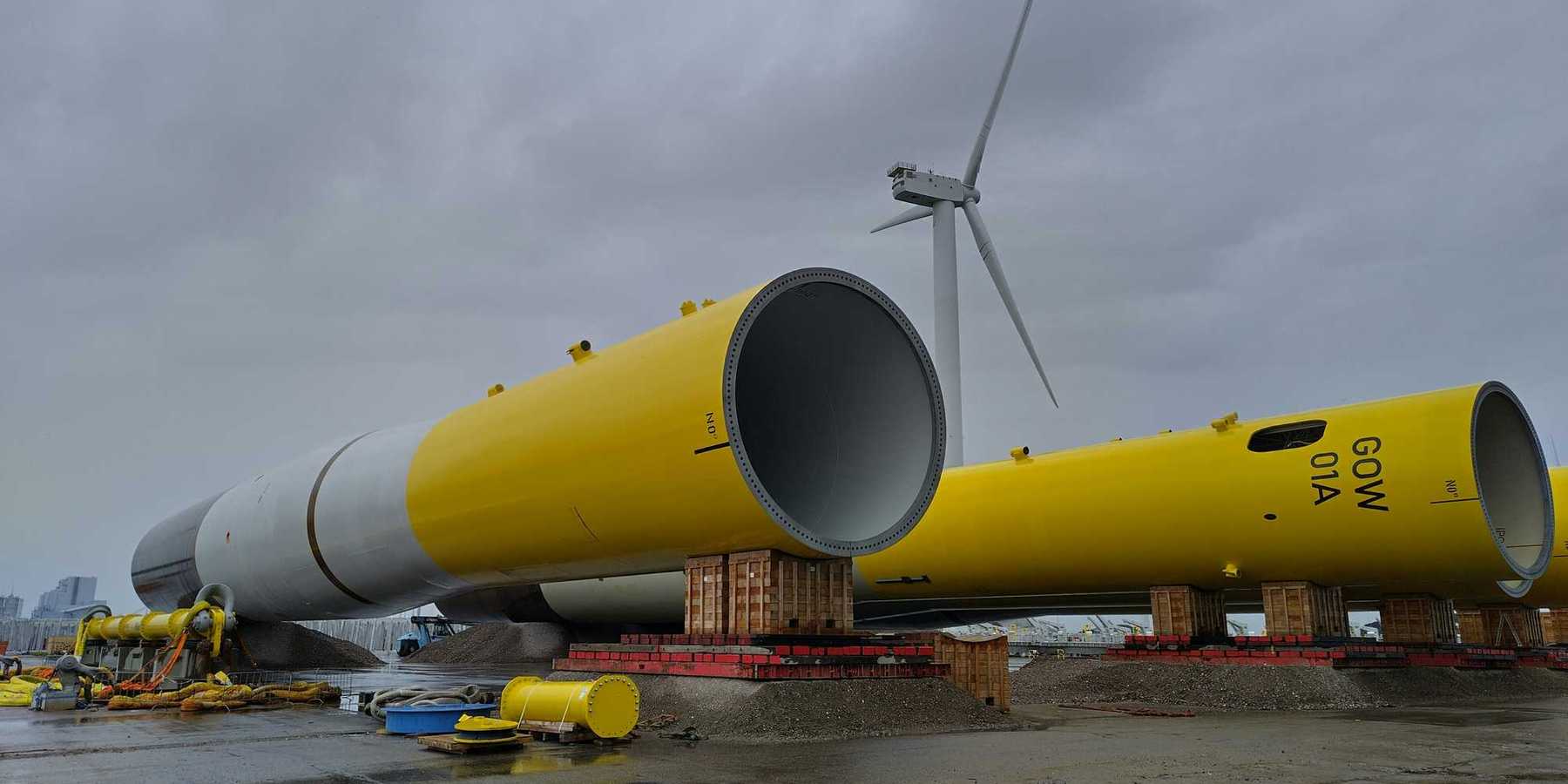land
County officials contest federal ruling on pipeline route restrictions
A federal judge’s decision to limit local and state authority over carbon dioxide pipeline routes faces challenges from multiple groups concerned about public safety.
In short:
- Chief Judge Stephanie Rose ruled that only federal regulators can enforce safety standards for CO2 pipelines, blocking Iowa counties from setting minimum separation distances.
- The ruling is being contested by organizations like the Iowa Farm Bureau and the Pipeline Safety Trust, which argue for the importance of local regulations to prevent potential hazards from pipeline ruptures.
- Appeals are ongoing, with arguments focusing on the balance of regulatory power between local, state, and federal authorities.
Key quote:
“Local governments have traditionally exercised broad powers to regulate land use, including setback distances and property development that includes development in the vicinity of pipelines.”
— Alan Mayberry, pipeline safety administrator for PHMSA
Why this matters:
Carbon dioxide pipelines, designed to transport CO2 for purposes like enhanced oil recovery and carbon capture and storage, have been touted as essential tools in the fight against climate change. However, their routes often cut through populated areas, raising alarms about the potential for accidents and leaks that could pose serious risks to human health and the environment.
Indigenous land rights crucial for climate success
Giving Indigenous communities greater control over their lands significantly improves conservation results, according to a new study in One Earth.
In short:
- Researchers analyzed 648 studies of conservation areas, comparing the ecological and social outcomes based on the degree of Indigenous involvement.
- The study found that recognizing Indigenous autonomy leads to significantly better environmental and social results than merely treating them as stakeholders.
- Examples include successful conservation in Chile’s Los Lagos Indigenous Marine Areas and ineffective efforts in China’s Hainan province due to lack of Indigenous involvement.
Key quote:
“The findings reveal that more equitable governance, based on equal partnership or primary control for [Indigenous peoples and local communities], are associated with significantly more positive ecological outcomes.”
— Study authors
Why this matters:
Indigenous communities have long been the stewards of vast tracts of land, preserving biodiversity and maintaining ecological balance through traditional knowledge and sustainable practices. Studies indicate that these lands support healthier ecosystems and store more carbon, an important factor in mitigating climate change. However, these benefits are jeopardized when Indigenous land rights are overlooked or violated.
Related EHN coverage:
Maldives' race to expand land raises environmental and social concerns
The Maldives is undertaking large-scale land reclamation to combat land scarcity and rising sea levels, but this move has sparked widespread environmental and societal concerns.
In short:
- Land reclamation in the Maldives involves dredging ocean floors to create new land, affecting marine ecosystems and local communities.
- Environmentalists and scientists warn that such projects harm coral reefs and disrupt natural sediment flows, increasing vulnerability to climate impacts.
- Despite government claims of economic development, local critics argue that new land has remained underutilized and has not addressed fundamental economic needs.
Key quote:
“Atolls are extremely vulnerable ecosystems."
— Bregje van Wesenbeeck, scientific director of Deltares
Why this matters:
The Maldives' strategy to secure its future against sea-level rise through land reclamation might cause more harm than benefit. The push to create more land — mainly to boost infrastructure and tourism — stirs significant concerns over the destruction of marine habitats, particularly coral reefs that are vital not only for biodiversity but also for natural storm protection. Socially, these developments spark debates about sustainability and the long-term livelihoods of local communities, many of whom rely heavily on the natural resources that are now under threat.
Justice Department supports Wisconsin tribe in pipeline dispute
In a recent legal development, the Justice Department has sided with a Wisconsin tribe's claim against a Canadian energy company over land rights, sparking controversy.
In short:
- The DOJ supported the Bad River Band's claim that Enbridge has trespassed on tribal land by operating the Line 5 pipeline, suggesting a higher compensation than the court-ordered $5.15 million.
- Despite DOJ's support, the request for immediate cessation of the pipeline's operation was not granted, raising concerns among tribal leaders.
- The broader implications involve international treaties and ongoing diplomatic tensions between the U.S. and Canada over pipeline operations.
Key quote:
“We are grateful the U.S. urged the court not to let Enbridge profit from its unlawful trespass.”
— Robert Blanchard, chairman of the Bad River Band of the Lake Superior Chippewa Indians
Why this matters:
Enbridge maintains that its projects are crucial for economic development and energy security, emphasizing its commitment to safety and environmental stewardship. The company also points to regulatory approvals and its efforts to consult with tribal communities as evidence of its attempt to balance these interests.
Tribal leaders and advocates argue that consultations are often inadequate and do not equate to obtaining free, prior, and informed consent—a standard set forth in the United Nations Declaration on the Rights of Indigenous Peoples.
Iowa's Senate reviews pipeline property bill
A proposed Iowa Senate bill aims to empower landowners in the face of pipeline construction, offering earlier judicial review opportunities amidst debates over eminent domain rights and environmental concerns.
In short:
- Iowa's proposed legislation may change how landowners can contest eminent domain for pipeline construction.
- The bill allows earlier court challenges and could let landowners halt projects without financial penalties.
- Aimed at giving landowners more rights, the bill is receiving mixed reactions regarding its potential impact on pipeline investments.
Key quote:
Those who oppose such projects “could use the tools of this bill to stop virtually any pipeline project in the state because they could create endless timelines, and time kills projects.”
— Jeff Boeyink, lobbyist for Summit Carbon Solutions
Why this matters:
Environmentalists and some landowners align in opposition to pipelines, citing potential risks to ecosystems, water sources, and the broader implications for climate change. They advocate for more investment in renewable energy sources as alternatives to fossil fuel dependency. Legally, the conflict often plays out in courts, with landowners challenging the use of eminent domain in the context of private companies and projects. The outcomes of these legal battles are mixed and continue to shape the evolving landscape of energy infrastructure in the U.S.
The US needs 22m acres for the solar energy transition – here’s what that looks like
If the US is to rid itself of fossil fuels then one of its primary replacements, solar energy, is going to need land. A lot of land.
Indonesian women's livelihoods upended by electric vehicle industry expansion
In Indonesia's quest to dominate the electric vehicle market, Sulawesi women report losing their farms for nickel mining, crucial for battery production.
In short:
- Sulawesi's pepper farmers, predominantly women, face land seizures as Indonesia accelerates nickel mining for electric vehicle batteries.
- The loss of land not only disrupts traditional farming but also poses significant economic and social challenges for local communities.
- Despite Indonesia's electric vehicle ambitions, the environmental and human costs raise critical questions about sustainable development.
Key quote:
"If we weren't evicted, we could have still earned millions of rupiahs. We're not rich people, but it's enough to cover our daily living costs."
— Masita, affected farmer in East Luwu
Why this matters:
This story highlights the complex intersection of environmental progress and human rights. While Indonesia's push toward electric vehicles marks a step toward sustainable energy, it also underscores the need for ethical and equitable resource extraction. How can we balance technological advancement with the protection of local communities and their livelihoods?
In push to mine for minerals, clean energy advocates ask what going green really means









